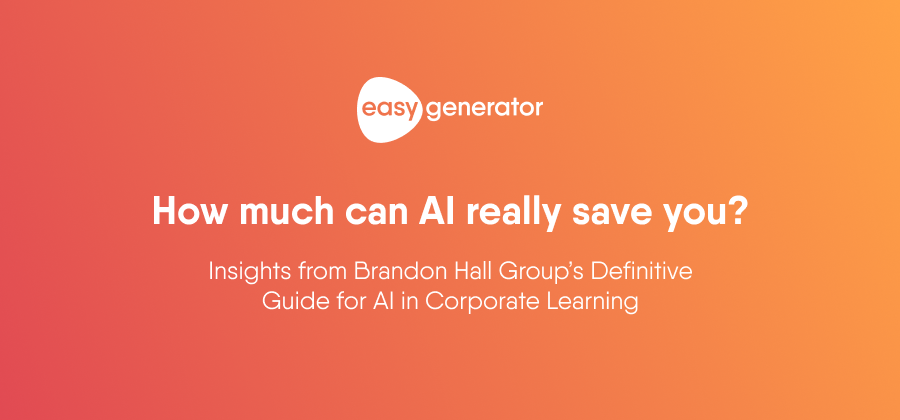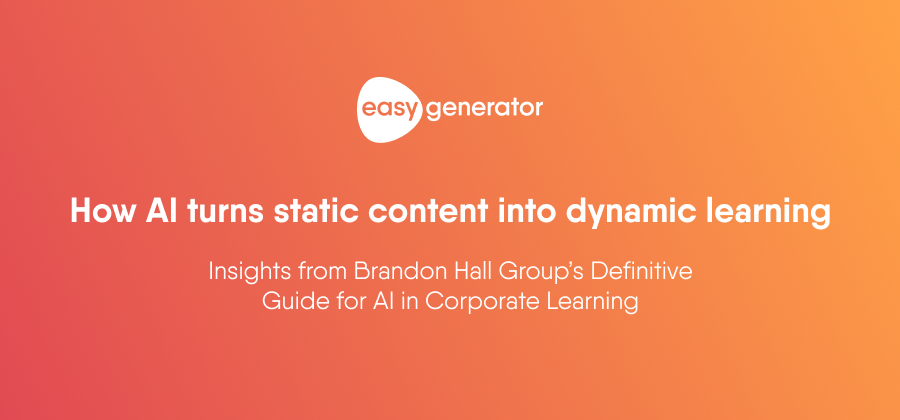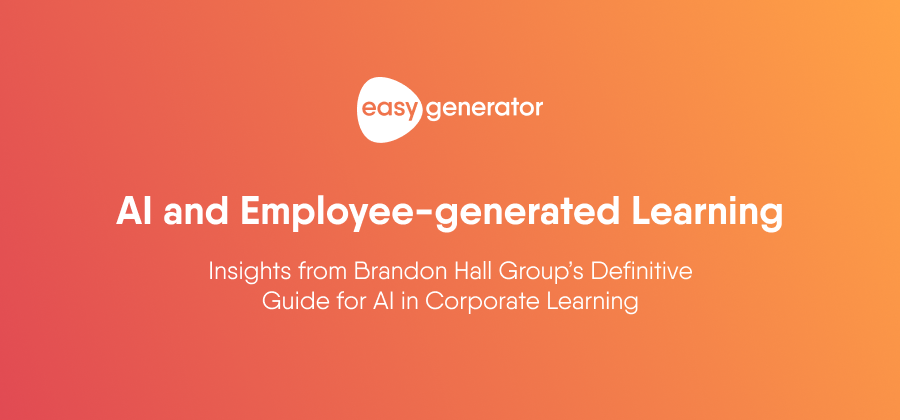What the Creator Economy means for the future of corporate learning
We’ve all heard about the creator economy. But what does it mean in the corporate learning space? And how can you reap its benefits for more effective knowledge sharing?

What is the Creator Economy?
The creator economy refers to a combination of both independent content creators and the companies behind the platforms that distribute this content.
These platforms (such as YouTube, TikTok, Facebook, etc.) provide creators with the tools and resources they need to distribute their work, which may include videos, articles, podcasts, tutorials, Q&A, webinars, infographics, reviews, memes, and other forms of expression. Additionally, they provide analytics and insights about content performance which help creators improve their content.
The creator economy is incredibly vast. YouTube Shorts, Instagram Reels, Facebook posts, TikToks, Tweets – no matter what the platform is, new content gets created every second by over 300 million content creators worldwide.c
Who is a content creator?
At a glance, the definition of ‘content creator’ might seem quite simple. After all, anyone who creates content and shares it online can be considered a content creator, right? Well, yes and no.
On the one hand, this broader definition of content creator is applicable in a general sense. But if we’re speaking in a professional content, a ‘content creator’ refers to someone who is responsible for creating entertaining or educational materials to be distributed through a specific medium or channel. This means content creators can be writers, bloggers, vloggers, artists – the list goes on.
Content creators don’t need to be expert teachers, but experts with an interest in sharing what they know and do.
Scale up your learning
Read our free guide to learn how leveraging your employees’ knowledge can speed up and scale the creation of learning material.
Knowledge Economy vs Creator Economy
The knowledge economy is based on the creation and use of knowledge and information as the main drivers of economic growth and development. It is characterized by the increasing importance of intellectual capital, education, and innovation as key factors in economic success.
The creator economy, on the other hand, refers to the use of digital platforms by individuals to create and share content online. The rise of the creator economy has been made possible by the growth of the internet and the increasing availability of digital tools and platforms that allow individuals to easily create and share their work online.
Both the knowledge economy and the creator economy rely on the production and dissemination of knowledge and information, but they differ in the way this is done and the focus of their respective economies. The knowledge economy is more focused on the use of knowledge and information to drive economic growth and development, while the creator economy is focused on the use of digital platforms by individuals to create and share content online.
The creator economy in L&D
In the context of L&D, the creator economy refers to the use of digital platforms by employees to create and share internal organizational knowledge in the form of e-learning courses, instructional videos, articles or ebooks, interactive learning experiences, and more. These creators may use authoring tools or platforms like YouTube and LinkedIn Learning to share their knowledge and engage with learners.
The rise of the creator economy in L&D has provided new opportunities for expert employees to share their knowledge and skills with others and for their peers to access a wide range of educational resources.
Although there are many companies that rely on off-the-shelf content, Josh Bersin reports that 70% of the content used for learning and development is developed internally by companies. This is likely because each company has its own unique processes, products, safety protocols, internal strategies, and compliance requirements, which cannot be fully met by generic, off-the-shelf content. As a result, companies often need to purchase some external content but also invest in constantly updating and revising their own internal materials to reflect changes in the company and business.
Additionally, employees tend to value content that is specific to their company and developed internally much more than content from external vendors. For example, every team in an organization has its own set of knowledge and skills which reside with the experts. A creator platform for corporate training could provide a way for these experts to publish and share their knowledge on a wide range of topics, enabling their peers to access a wide range of practical content created by their more experienced colleagues.
The future of corporate learning is Employee-generated Learning
The current workforce is going through major transformations due to a number of factors: the Great Resignation, a looming recession, the shift to remote work, the increased speed of business, among others. These changes have driven learning leaders towards an easier, quicker, and bottom-up knowledge creation workflow in order to capture, preserve, share and update learning content regularly.
The conventional L&D processes that support the flow of knowledge within organizations are slow, costly, and cannot keep up with the current speed of change in most businesses. Fortunately, there’s a better way to share organizational knowledge: at Easygenerator, we call it Employee-generated Learning (EGL). In essence, with this approach, any employee can share their knowledge and skills with their colleagues without having to go through L&D. With EGL, organizations can seamlessly embrace the essence of creator economy and share and update their internal knowledge quickly in response to changing needs and trends, ensuring that the knowledge remains relevant and valuable to their employees.


